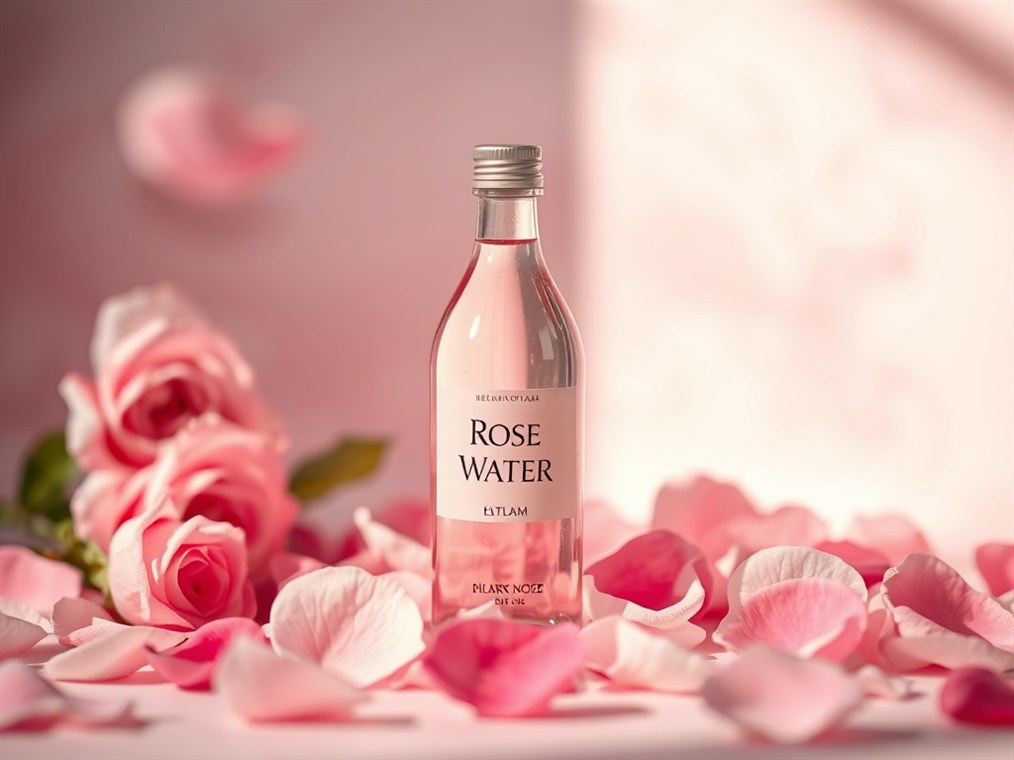Rose Water as Toner: Hype or Holy Grail? A Real-Talk Guide
Rose water. You’ve seen it splashed across Instagram, touted by beauty gurus, and maybe even spotted it gathering dust on your grandma’s vanity. But does this fragrant liquid actually work as a toner? Let’s get real.
First off, what is a toner anyway? Think of it as the unsung hero of your skincare routine, swooping in after cleansing to mop up any lingering grime. Back in the day, toners were all about restoring your skin’s pH balance after those harsh, stripping cleansers. Nowadays, they’re more like targeted treatments, delivering everything from hydration to blemish control.
Now, rose water’s been around the block – like, way around the block. We’re talking ancient Persia, where they figured out how to distill those delicate petals into liquid gold. It wasn’t just for smelling pretty, either. They used it for everything from medicine to, you guessed it, beauty rituals. The Greeks, Romans, even the Egyptians were all in on the rose water secret. So, it’s safe to say this isn’t just some flash-in-the-pan trend.
But what’s the actual deal? Why might rose water work as a toner?
Well, for starters, it’s all about that pH balance. Your skin naturally hangs out around a slightly acidic pH, and keeping it there is key to a happy complexion. Mess that up, and you’re looking at potential problems like eczema, breakouts, or just general irritation. Rose water? It’s naturally in that sweet spot, helping to keep things balanced.
And let’s not forget hydration! Rose water is surprisingly moisturizing and can actually help your skin hold onto water better. Think of it like a tall drink of water for your face, especially when paired with other hydrating heroes like ceramides or glycerin.
But wait, there’s more! Rose water also packs a punch when it comes to calming things down. Got red, irritated skin? Rose water’s got your back (or, rather, your face). Studies have shown it has anti-inflammatory properties, which can help soothe everything from eczema flare-ups to rosacea redness. I even read one study that suggested it could help calm inflammation after a sunburn!
Plus, it’s loaded with antioxidants – those little warriors that fight off free radicals and protect your skin from environmental damage. Think of it as a shield against premature aging, helping to keep those wrinkles and fine lines at bay. One study even showed that rose petal extract helped protect skin cells from damage. Pretty cool, huh?
And if you’re battling breakouts, rose water might offer some mild relief. It has some antibacterial properties that can help keep those pesky bacteria in check. Plus, it’s a known antiseptic, so it can help speed up the healing of minor cuts, scrapes, and even acne scars.
So, how do you use it? Easy peasy.
- Cleanse: Wash your face with your favorite cleanser to get rid of makeup and dirt.
- Tone: Spritz rose water directly onto your face or apply it with a cotton pad.
- Treat & Moisturize: Follow up with your serums and moisturizer.
Now, let’s talk about the competition. How does rose water stack up against other toners?
Well, a lot of traditional toners are loaded with alcohol, which can be incredibly drying and irritating, especially if you have sensitive skin. Rose water is a much gentler, alcohol-free alternative.
Of course, there are also toners with active ingredients like salicylic acid or glycolic acid, designed to target specific skin concerns. You can use rose water in conjunction with these, but proceed with caution! You don’t want to overload your skin and end up with a red, irritated mess.
And what about witch hazel? Another popular natural toner, but honestly, it can be a bit harsh and drying compared to rose water.
Now, before you go dousing your face in rose water, a few words of caution.
First, allergies. While rare, some people might be sensitive to rose water. So, do a patch test first! Dab a little on your inner arm and wait 24 hours to see if you have any reaction.
Second, quality matters. Not all rose water is created equal. Look for pure rose water or rose hydrosol, and avoid anything with synthetic fragrances or additives.
And finally, be careful what you mix it with. Avoid using rose water with alcohol-based toners, strong acids, hydrogen peroxide, or bleaching agents. Trust me, that’s a recipe for disaster.
So, the final verdict? I think rose water can be a fantastic addition to your skincare routine, especially as a toner. It’s gentle, hydrating, and packed with skin-loving benefits. But remember, it’s not a miracle cure. Choose a good quality product, be mindful of potential interactions, and always listen to your skin. If it doesn’t like something, it’ll let you know!

